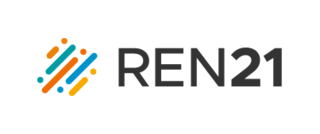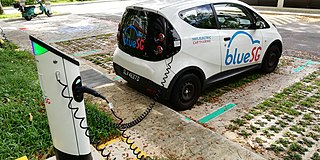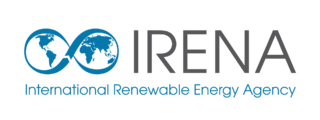
Extreme poverty is the most severe type of poverty, defined by the United Nations (UN) as "a condition characterized by severe deprivation of basic human needs, including food, safe drinking water, sanitation facilities, health, shelter, education and information. It depends not only on income but also on access to services". Historically, other definitions have been proposed within the United Nations.

The United Nations (UN) is an intergovernmental organization whose stated purposes are to maintain international peace and security, develop friendly relations among nations, achieve international cooperation, and serve as a centre for harmonizing the actions of nations. It is the world's largest international organization. The UN is headquartered in New York City, and the organization has other offices in Geneva, Nairobi, Vienna, and The Hague, where the International Court of Justice is headquartered.

The United Nations Economic and Social Council is one of the six principal organs of the United Nations, responsible for coordinating the economic and social fields of the organization, specifically in regards to the fifteen specialised agencies, the eight functional commissions, and the five regional commissions under its jurisdiction.

The United Nations Environment Programme (UNEP) is responsible for coordinating responses to environmental issues within the United Nations system. It was established by Maurice Strong, its first director, after the United Nations Conference on the Human Environment in Stockholm in June 1972. Its mandate is to provide leadership, deliver science and develop solutions on a wide range of issues, including climate change, the management of marine and terrestrial ecosystems, and green economic development. The organization also develops international environmental agreements; publishes and promotes environmental science and helps national governments achieve environmental targets.
The United Nations Development Programme (UNDP) is a United Nations agency tasked with helping countries eliminate poverty and achieve sustainable economic growth and human development. The UNDP emphasizes developing local capacity towards long-term self-sufficiency and prosperity.

The Millennium Development Goals (MDGs) were eight international development goals for the year 2015 that had been established following the Millennium Summit of the United Nations in 2000, following the adoption of the United Nations Millennium Declaration. These were based on the OECD DAC International Development Goals agreed by Development Ministers in the "Shaping the 21st Century Strategy". The Sustainable Development Goals (SDGs) succeeded the MDGs in 2016.

REN21 is a think tank and a multistakeholder governance group which is focused on renewable energy policy.

Clean technology, in short cleantech or climatetech, is any process, product, or service that reduces negative environmental impacts through significant energy efficiency improvements, the sustainable use of resources, or environmental protection activities. Clean technology includes a broad range of technology related to recycling, renewable energy, information technology, green transportation, electric motors, green chemistry, lighting, grey water, and more. Environmental finance is a method by which new clean technology projects can obtain financing through the generation of carbon credits. A project that is developed with concern for climate change mitigation is also known as a carbon project.
The United Nations Office at Nairobi in Nairobi, the capital of Kenya, is one of four major United Nations office sites where numerous different UN agencies have a joint presence. Established in 1996, it is the UN's official headquarters in Africa.
The United Nations Sustainable Development Group (UNSDG), previously the United Nations Development Group (UNDG), is a consortium of 36 United Nations funds, programmes, specialized agencies, departments and offices that play a role in development. It was created by the Secretary-General of the United Nations in order to improve the effectiveness of United Nations development activities at the country level.

Alhaji Dr. Kandeh Kolleh Yumkella is a Sierra Leonean agricultural economist, politician, and the former United Nations Under-Secretary-General and the Special Representative of the Secretary-General for Sustainable Energy for All. He was also the chief executive officer of the Sustainable Energy for All Initiative. Yumkella is a former Chairman of UN-Energy and a two-term former Director-General of the United Nations Industrial Development Organization (UNIDO).

The Post-2015 Development Agenda was a process from 2012 to 2015 led by the United Nations to define the future global development framework that would succeed the Millennium Development Goals. The new framework, starting from 2016 is called Sustainable Development Goals.

The Sustainable Development Goals (SDGs) or Global Goals are a collection of seventeen interlinked objectives designed to serve as a "shared blueprint for peace and prosperity for people and the planet, now and into the future." The short titles of the 17 SDGs are: No poverty (SDG 1), Zero hunger (SDG 2), Good health and well-being (SDG 3), Quality education (SDG 4), Gender equality (SDG 5), Clean water and sanitation (SDG 6), Affordable and clean energy (SDG 7), Decent work and economic growth (SDG 8), Industry, innovation and infrastructure (SDG 9), Reduced inequalities (SDG 10), Sustainable cities and communities (SDG 11), Responsible consumption and production (SDG 12), Climate action (SDG 13), Life below water (SDG 14), Life on land (SDG 15), Peace, justice, and strong institutions (SDG 16), Partnerships for the goals (SDG 17).

The International Renewable Energy Agency (IRENA) is an intergovernmental organization mandated to facilitate cooperation, advance knowledge, and promote the adoption and sustainable use of renewable energy. It is the first international organisation to focus exclusively on renewable energy, addressing needs in both industrialised and developing countries. It was founded in 2009 and its statute entered into force on 8 July 2010. The agency is headquartered in Masdar City, Abu Dhabi. The Director-General of IRENA is Francesco La Camera, a national of Italy. IRENA is an official United Nations observer.

Rachel Elizabeth Kyte is a British academic who served as the 14th dean of The Fletcher School at Tufts University from October 2019 to June 2023, and the first woman to lead the oldest graduate-only school of international affairs in the United States. She was the former Chief Executive Officer of Sustainable Energy for All, and Special Representative of the United Nations Secretary-General for Sustainable Energy for All.
Burning of charcoal and wood fuel provides approximately 94 percent of the energy in Malawi. Much of the renewable hydroelectric potential of the country is untapped. As per 2018 Population and Housing Census, the national electrification rate in Malawi was 10%, with 37% of the urban population and only 2% of the rural population having access to electricity.

The Republic of Kazakhstan became a member of the United Nations on March 2, 1992. Kazakhstan was elected to serve on the UN Security Council for the 2017–2018 term. UN Secretary-General António Guterres in remarks to the UNSC recognized Kazakhstan's work to rid the world of weapons of mass destruction and global non-proliferation efforts.

Damilola Ogunbiyi is a global leader and advocate for the achievement of the Sustainable Development Goals (SDGs) with a focus on SDG7, which calls for access to reliable, affordable, sustainable, and modern energy for all by 2030. She is the Chief Executive Officer of Sustainable Energy for All, the Special Representative of the UN Secretary-General for Sustainable Energy for All, and Co-Chair of UN-Energy.

Sustainable Development Goal 13 is to limit and adapt to climate change. It is one of 17 Sustainable Development Goals established by the United Nations General Assembly in 2015. The official mission statement of this goal is to "Take urgent action to combat climate change and its impacts". SDG 13 and SDG 7 on clean energy are closely related and complementary.

Sustainable Development Goal 7 is one of 17 Sustainable Development Goals established by the United Nations General Assembly in 2015. It aims to "Ensure access to affordable, reliable, sustainable and modern energy for all." Access to energy is an important pillar for the wellbeing of the people as well as for economic development and poverty alleviation.















